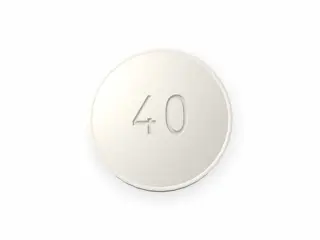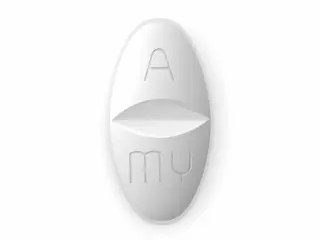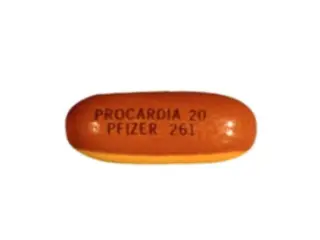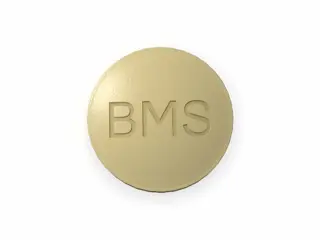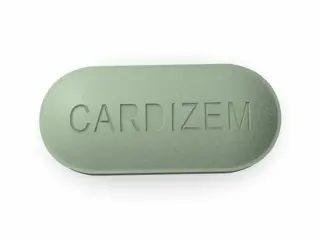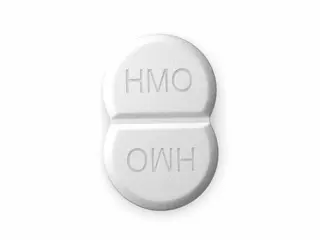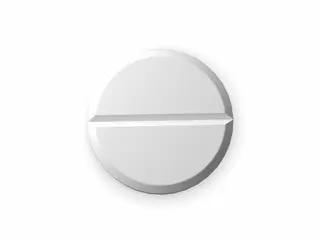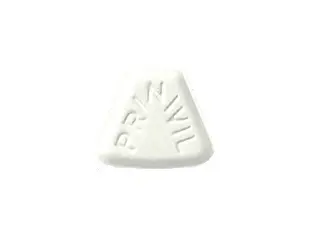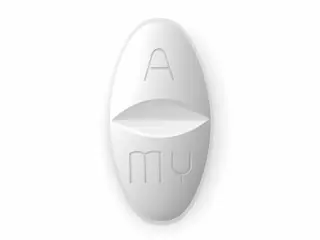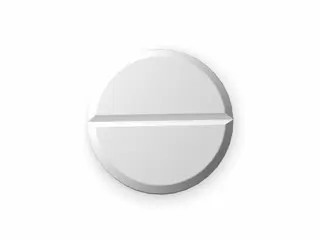Blood Pressure
Find a wide range of effective blood pressure medications and monitoring devices to help you manage and maintain healthy levels with confidence. Shop trusted brands and ensure your heart health today.
Blood pressure management is vital for overall heart health. High blood pressure, or hypertension, can lead to serious complications like stroke, heart attack, and kidney failure. Many medications are available to treat this condition. Below is a review of popular blood pressure medications found in online pharmacies.
Aceon (Perindopril) is an ACE inhibitor. It relaxes blood vessels and lowers blood pressure. Patients often note its effectiveness in controlling hypertension with few side effects. It may cause dizziness in some individuals initially, but it is generally well tolerated. It also helps protect the kidneys, especially in diabetic patients.
Adalat (Nifedipine) is a calcium channel blocker. It works by relaxing the muscles of the heart and blood vessels. It is effective for both high blood pressure and certain types of angina. Its extended-release form ensures a steady decrease in blood pressure throughout the day. Common side effects include swelling of the ankles and flushing.
Aldactone (Spironolactone) is a potassium-sparing diuretic. It reduces fluid retention by increasing urination while sparing potassium. It helps in resistant hypertension cases and in conditions like heart failure. Patients may experience increased potassium levels, so monitoring is necessary. Others report changes in menstrual cycles or breast tenderness.
Altace (Ramipril) is a well-known ACE inhibitor used frequently in hypertension and heart failure. It lowers blood pressure and protects the heart and kidneys. Users appreciate its once-daily dosing. Side effects are usually mild but can include dry cough and elevated potassium.
Avapro (Irbesartan) belongs to the class of angiotensin II receptor blockers (ARBs). It blocks substances that tighten blood vessels. It is widely used for hypertension and diabetic kidney protection. Many tolerate Avapro well, with a low incidence of cough compared to ACE inhibitors.
Beloc (Metoprolol) is a beta-blocker. It slows heart rate and reduces blood pressure. It is helpful in hypertension, angina, and after heart attacks. Some users report fatigue or cold hands and feet. Extended-release versions provide smooth blood pressure control throughout the day.
Benicar (Olmesartan) is another ARB used to manage high blood pressure. It helps reduce the risk of strokes and heart attacks. Patients often note its effectiveness in lowering blood pressure with minimal side effects. Some individuals might experience dizziness or gastrointestinal discomfort.
Calan and Calan SR (Verapamil) are calcium channel blockers that relax the heart and blood vessels. It is prescribed for hypertension and certain heart rhythm disorders. The sustained-release (SR) form provides consistent blood pressure control. Possible side effects include constipation and swelling.
Cardizem (Diltiazem) is similar to verapamil and used to treat high blood pressure and chest pain. It helps by relaxing the arteries. Extended-release forms maintain steady blood pressure control. Some patients report headaches or mild flushing.
Cartia XT (Diltiazem extended-release) offers once-daily dosing with effective blood pressure management. It is especially useful for patients needing prolonged action. Side effects are comparable to immediate-release diltiazem.
Catapres and Clonidine reduce nerve signals that tighten blood vessels. They are often used in resistant hypertension cases. Clonidine also helps with withdrawal symptoms. Some patients may experience dry mouth or sedation.
Combipres combines two antihypertensives, usually an ACE inhibitor with a diuretic. This combination improves efficacy and convenience. It is suitable for patients who require multiple agents to control blood pressure.
Coreg (Carvedilol) is a beta-blocker with additional effects that relax blood vessels. It is beneficial for hypertension and heart failure patients. Users often observe improved exercise tolerance. Side effects can include fatigue or dizziness at onset.
Coversyl (Perindopril) is similar to Aceon. It effectively lowers blood pressure and protects the heart and kidneys. Patients appreciate its once-daily dosing. Occasional side effects include dry cough and low blood pressure symptoms.
Cozaar (Losartan) is a popular ARB. It is effective for high blood pressure and kidney protection, particularly in diabetes. Patients prefer its low side effect profile. Rare side effects include dizziness and increased potassium levels.
Diltiazem is a versatile calcium channel blocker. It is effective for both hypertension and certain arrhythmias. Users tolerate it well. Common mild side effects include headaches and swelling.
Esidrix (Hydrochlorothiazide) is a thiazide diuretic. It reduces blood volume by increasing urination. It is often part of combination therapy. Patients need to monitor electrolytes as low potassium can occur.
Frumil combines a loop diuretic with potassium-sparing components. It is effective in managing fluid retention and high blood pressure. Patients report good results, though electrolyte monitoring is essential.
Hytrin (Terazosin) relaxes blood vessels and is often used for hypertension and urinary symptoms. It can cause dizziness, especially when standing up quickly.
Hyzaar combines losartan with hydrochlorothiazide. This dual action improves blood pressure control. Most users find it effective with manageable side effects.
Inderal and Inderal LA (Propranolol) are beta-blockers that reduce heart rate and blood pressure. They are widely used for hypertension and migraine prevention. Common side effects include fatigue and cold extremities.
Isoptin and Isoptin SR (Verapamil) have similar effects to other calcium channel blockers. SR versions allow once or twice daily dosing. Users find it effective for sustained blood pressure control.
Lasix (Furosemide) is a potent loop diuretic. It removes excess fluid rapidly. It is more commonly used in heart failure but is also helpful in certain hypertension cases. Electrolyte disturbance is a common concern requiring monitoring.
Lisinopril is a popular ACE inhibitor. It is prescribed widely for hypertension and heart failure. Users appreciate its once-daily dosing and protective cardiac effects. It can cause a persistent dry cough in some.
Lopressor (Metoprolol) is similar to Beloc and used in hypertension and heart-related conditions. It slows the heart rate and lowers blood pressure effectively.
Lozol (Indapamide) is a diuretic with antihypertensive effects. It works well for fluid control and mild to moderate blood pressure elevation. Patients often report good tolerance.
Micardis (Telmisartan) is another ARB used to manage blood pressure. It has a long duration and may provide protection against stroke and heart attack. Side effects are generally mild, including dizziness.
Microzide (Hydrochlorothiazide) is widely used as a first-line diuretic for hypertension. It is effective and inexpensive but requires monitoring for low potassium and dehydration.
Minipress (Prazosin) works by relaxing blood vessels. It is useful in hypertension and certain prostate conditions. Dizziness and fainting can occur, especially after the first dose.
Norvasc (Amlodipine) is a calcium channel blocker favored for its once-daily dosing and minimal side effects. It effectively lowers blood pressure and treats angina. Some users report swelling of the feet or mild flushing.
Prinivil (Lisinopril) mirrors lisinopril's benefits. It is effective, affordable, and well tolerated. Patients benefit from its consistent blood pressure control.
Procardia (Nifedipine) is a calcium channel blocker used for hypertension and angina. Extended-release forms are preferred for steady blood pressure management. Side effects may include dizziness and swelling.
Tenormin (Atenolol) is a beta-blocker for hypertension and heart issues. It lowers heart rate and controls blood pressure but may cause fatigue or cold fingers.
Toprol and Toprol XL (Metoprolol) are beta-blockers with short and extended-release options. They help manage hypertension, heart failure, and angina. Side effects include tiredness and slow heart rate.
Trandate (Labetalol) blocks beta and alpha receptors. It is effective for severe hypertension and pregnancy-related high blood pressure. Side effects may include dizziness and fatigue.
Tritace (Ramipril) is an ACE inhibitor similar to Altace. It improves heart and kidney health. Users report good blood pressure control with occasional dry cough.
Vasotec (Enalapril) is another widely used ACE inhibitor. It lowers blood pressure and protects organs. Side effects can include cough and low blood pressure symptoms.
Verampil and Verapamil refer to the same drug, a calcium channel blocker. It provides effective blood pressure and arrhythmia management with manageable side effects.
Zebeta (Bisoprolol) is a beta-blocker that slows the heart and lowers blood pressure. It is generally well tolerated. Patients may experience fatigue or cold extremities.
Zestoretic combines lisinopril with hydrochlorothiazide. This single-pill combination improves blood pressure control with once-daily dosing. Side effects may include cough or electrolyte imbalance.
Zestril (Lisinopril) is another common brand of lisinopril. It helps control blood pressure and reduce cardiovascular risks. Its convenient once-daily dosage is a major advantage.
Choosing the right medication depends on individual health needs, tolerance, and doctor recommendations. Combining drugs from different classes can improve control when monotherapy is insufficient. Regular monitoring of blood pressure and side effects is crucial during treatment.
